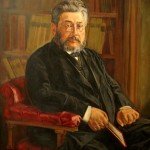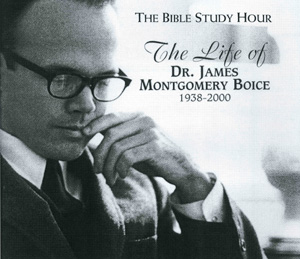but precious. Of course, it can’t be precious if it’s not true. So that’s the biggest reason we embrace it. But let’s start with a definition:
Unconditional election is God’s free choice before creation, not based on foreseen faith, to which traitors he will grant faith and repentance, pardoning them, and adopting them into his everlasting family of joy.
1. We embrace unconditional election because it is true.
All my objections to unconditional election collapsed when I could no longer explain away Romans 9. The chapter begins with Paul’s readiness to be cursed and cut off from Christ for his unbelieving Jewish kinsmen (verse 3). This implies that some Jews are perishing. And that raises the question of God’s promise to the Jews. Had it failed? Paul answers, “It is not as though the word of God has failed” (verse 6). Why not?
Because “not all who are descended from Israel belong to Israel” (verse 6). In other words, God’s purpose was not to acquit every individual person in Israel. It was instead a purpose of election.
So to illustrate the point of God’s unconditional election Paul uses the analogy of Jacob and Esau: “Though they were not yet born and had done nothing either good or bad — in order that God’s purpose of election might continue, not because of works but because of him who calls — [Rebekah] was told, ‘The older will serve the younger’” (verses 11–12).
In other words, God’s original purpose in choosing individuals for himself out of Israel (and all the nations! Revelation 5:9) was not based on any conditions that they would meet. It was an unconditional election. And thus he says, “I will have mercy on whom I have mercy, and I will have compassion on whom I have compassion” (verse 15; see verses 16–18; Romans 11:5–7).
Jesus confirms this teaching: “All that the Father gives me will come to me, and whoever comes to me I will never cast out” (John 6:37). Coming to Jesus is not a condition we meet to qualify for election. It is the result of election. The Father has chosen his sheep. They are his. And he gives them to the Son. That is why they come. “No one can come to me unless it is granted him by the Father” (John 6:65). “You did not choose me, but I chose you” (John 15:16; see John 17:2, 6, 9; Galatians 1:15).
In the book of Acts why did some believe and not others? Luke’s answer is election: “As many as were appointed to eternal life believed” (Acts 13:48). This “appointment” — this election—was not based on foreseen faith, it was the cause of faith.
In Ephesians 1 Paul says, “[God] chose us in [Christ] before the foundation of the world. . . . In him we have obtained an inheritance, having been predestined according to the purpose of him who works all things according to the counsel of his will” (Ephesians 1:4, 11). It is the “counsel of God’s will” that is eternally decisive in this affair.
What will you say to God at the judgment if he asks, “Why did you believe on my Son while others didn’t?” You will not say: “Because I was smarter.” No. Surely you will say, “Because of your grace. Had you not chosen me, I would have been left spiritually dead, unresponsive, guilty.”
2. We embrace unconditional election because God designed it to make us fearless in our proclamation of his grace in a hostile world.
“If God is for us, who can be against us? . . . Who shall bring any charge against God’s elect?” (Romans 8:31, 33).
3. We embrace unconditional election because God designed it to make us humble.
“God chose what is foolish in the world to shame the wise . . . so that no human being might boast in the presence of God. . . . Let the one who boasts, boast in the Lord” (1 Corinthians 1:27, 29, 31).
4. We embrace unconditional election because God made it a powerful moral impetus for compassion, kindness, and forgiveness.
“Put on then, as God’s chosen ones, holy and loved, compassionate hearts, kindness . . . forgiving each other” (Colossians 3:12–13). No one has seen or savored his election truly who is not moved by it to become kind and patient and forgiving.
5. We embrace unconditional election because it is a powerful incentive in our evangelism to help unbelievers who are great sinners not despair.
When you offer Christ freely to all unbelievers, suppose one says, “I have sinned too terribly. God could never choose to save me.” The most ultimate despair-destroying thing you can say is this: Do you realize that God chose before the foundation of the world whom he will save? And he did it based on absolutely nothing in you. Before you were born or had done anything good or bad, God chose whether to save you or not.
Therefore, you dare not get in God’s face and tell him what qualifications you lack in order to be chosen. There were no qualifications for being chosen. “What then should I do?” he asks. “Believe in the Lord Jesus Christ, and you will be saved” (Acts 16:31). That’s how you begin to “confirm your calling and election” (2 Peter 1:10). If you will embrace the Savior, you will confirm that you are elect, and you will be saved.
 Back in March this year, I had the privilege of being interviewed on the Apologia Radio show and was asked a number of questions about Divine election. I continue to get good feedback from people who have listened to the broadcast.
Back in March this year, I had the privilege of being interviewed on the Apologia Radio show and was asked a number of questions about Divine election. I continue to get good feedback from people who have listened to the broadcast.



 “…just as He chose us in Him before the foundation of the world, according to the kind intention of His will, to the praise of the glory of His grace, which He freely bestowed on us in the Beloved. ” Ephesians 1:4-6
“…just as He chose us in Him before the foundation of the world, according to the kind intention of His will, to the praise of the glory of His grace, which He freely bestowed on us in the Beloved. ” Ephesians 1:4-6